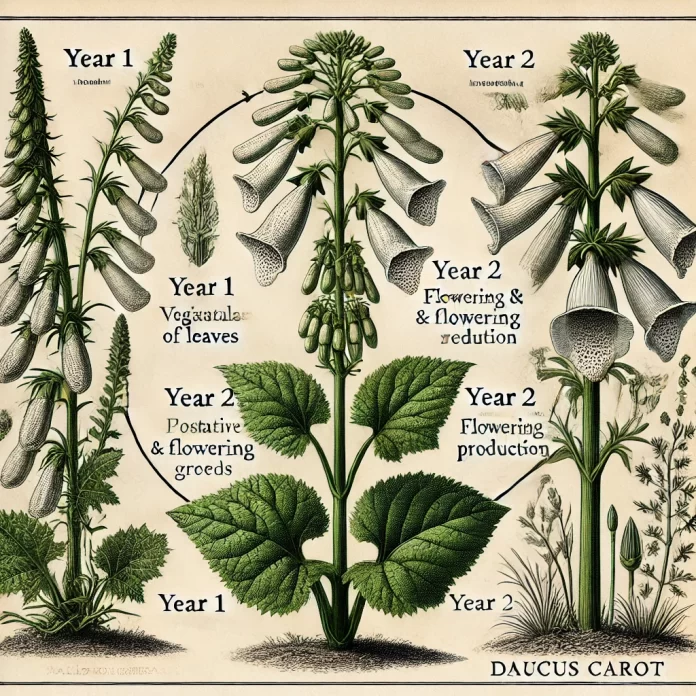Biennial Plants
Definition:
A biennial is a plant that completes its life cycle over two years. In the first year, it grows vegetatively, producing leaves, roots, and stems, often forming a basal rosette. In the second year, it flowers, sets seed, and then dies.
Growth Cycle:
- First Year:
- Germination occurs, and the plant focuses on vegetative growth.
- Energy is stored in roots or other structures to support flowering in the second year.
- Second Year:
- The plant enters the reproductive phase, sending up a flowering stem.
- After seed production, the plant completes its life cycle and dies.
Examples of Biennial Plants:
- Vegetables: Carrot (Daucus carota), Parsnip (Pastinaca sativa), Celery (Apium graveolens).
- Flowers: Foxglove (Digitalis purpurea), Sweet William (Dianthus barbatus), Hollyhock (Alcea rosea).
- Weeds: Teasel (Dipsacus fullonum), Burdock (Arctium spp.).
Ecological and Horticultural Importance:
- Many biennials provide habitat and food for pollinators.
- Some, like carrots and parsnips, are harvested in their first year before flowering.
- Biennial ornamental plants add seasonal interest to gardens, particularly those that self-seed.
Special Cases:
- Vernalization: Many biennials require a period of cold temperatures to trigger flowering in the second year.
- Bolting: If exposed to unseasonal cold or stress, some biennials may prematurely flower in their first year, reducing crop quality (e.g., lettuce, beets).




